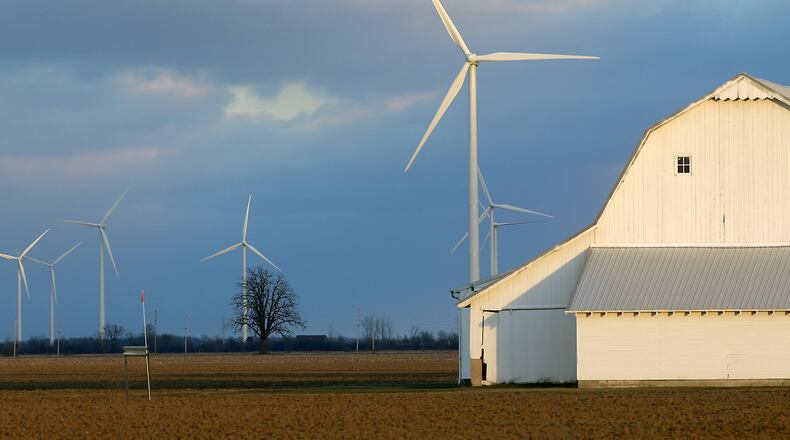“For me, this has been a huge relief that we will have a change in the way we approach environmental issues with the Biden administration,” said Bob Brecha, a University of Dayton professor currently in Germany on a European Union Marie Curie Fellowship where he is studying sustainable energy access in developing countries.
But the new policies and other actions that support renewable energy will play out against political headwinds, said Bob Steinbach, a Beavercreek resident and the 10th Congressional District liaison for the Citizens’ Climate Lobby.
“Nothing big can happen in government without it passing Congress and being signed. And then withstand elections.” he said. “You have to have bipartisan support to get something into place.”
Opponents of some of the moves, however, warn that they can be a drag on the local economy.
Regulations, limits and carbon enforcement mechanisms in Biden’s climate plan could drive up energy costs and hurt Ohioans in the pocketbook, said Rea S. Hederman Jr., executive director of the Economic Research Center at The Buckeye Institute.
“Mandates that increase the cost of doing business will reduce the number of jobs in Ohio and make families worse off as they have to pay more for the same good. Spending more on energy means less money for food, clothes and other purchases,” Hederman said.
Brian Martin, executive director of the Miami Valley Regional Planning Commission, anticipates Biden will strive to achieve his campaign pledges.
“I think the new administration will be more active — on the environment and in transportation, in equity and sustainability — in all the things that we work on and care about in redevelopment of our region,” said Brian Martin, “So we’re hopeful.”
The Trump administration missed an opportunity for major progress by not focusing on rebuilding the country’s infrastructure, said Brecha. Brecha will return in the summer to be professor of sustainability at UD’s Hanley Sustainability Institute.
“That the Biden administration is saying we want to recover from COVID by investing in infrastructure and investing in the future and doing it in a green way, including renewable energy and electric vehicles, and many other things, that’s going to just strengthen the economy, and it’s going to strengthen the future,” he said.
Locally, climate change is less destructive but evident, such as the trifling maple syrup harvest due to mild winters, record-high summer temperatures and precipitation patterns that flummox farmers, Steinbach said.
About the Author

